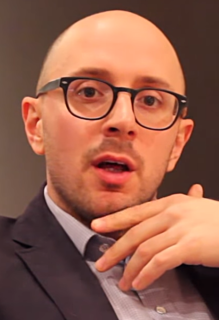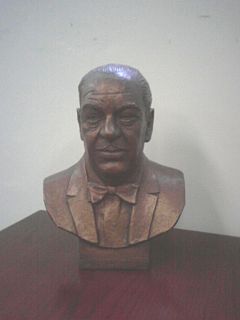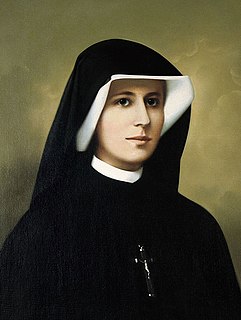A Quote by Thomas a Kempis
If you desire to know or learn anything to your advantage, then take delight in being unknown and unregarded. A true understanding and humble estimate of oneself is the highest and most valuable of all lessons.
Related Quotes
The delight we take in our senses is an implicit desire to know the ultimate reason for things, the highest cause. The desire for wisdom that philosophy etymologically is is a desire for the highest or divine causes. Philosophy culminates in theology. All other knowledge contains the seeds of contemplation of the divine.
Anxiety and desire are two, often conflicting, orientations to the unknown. Both are tilted toward the future. Desire implies a willingness, or a need, to engage this unknown, while anxiety suggests a fear of it. Desire takes one out of oneself, into the possibility or relationship, but it also takes one deeper into oneself. Anxiety turns one back on oneself, but only onto the self that is already known.
All personal achievement starts in the mind of the individual. Your personal achievement starts in your mind. the first step is to know exactly what your problem, goal or desire is. If you're not clear about this, then write it down, and rewrite it until the words express precisely what you are after. Every disadvantage has an equivalent advantage - if you'll take the trouble to find it. Learn to do that and you'll kick the stuffing out of adversity every time.
Processes of avoiding the world within in order to try to regulate your behavior, or becoming entangled in your thoughts interfering with your ability to take advantage of what's around you, or losing contact with your values for fear that you'll know more about the places where you hurt - those kinds of processes are just normal psychological processes. And if you take the mode of mind that works great in 95 percent of your life and apply it within, it then implodes. It starts creating barriers, and that's true at work, it's true in our culture, true in our politics.
The true makes of history are the spiritual men whom the world knew not, the unregarded agents of the creative action of the Spirit. The supreme instance of this-the key to the Christian understanding of history-is to be found in the Incarnation- the presence of the maker of the world in the world unknown to the world. ... The Incarnation is itself in a sense the divine fruit of history-of the fullness of time-and it finds its extension and completion in the historic life of the Church.
My desire for knowledge is intermittent; but my desire to bathe my head in atmospheres unknown to my feet is perennial and constant. The highest that we can attain to is not Knowledge, but Sympathy with Intelligence. I do not know that this higher knowledge amounts to anything more definite than a novel and grand surprise on a sudden revelation of the insufficiency of all that we called Knowledge before,—a discovery that there are more things in heaven and earth than are dreamed of in our philosophy.





































